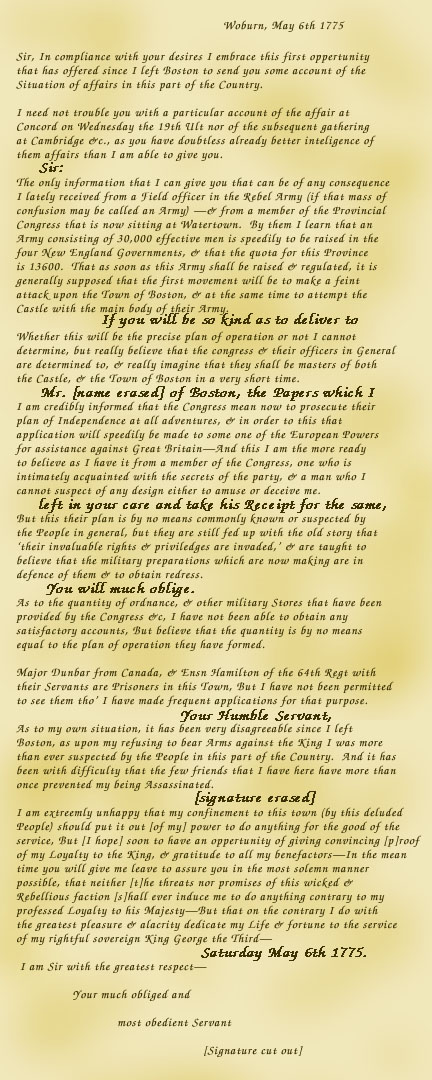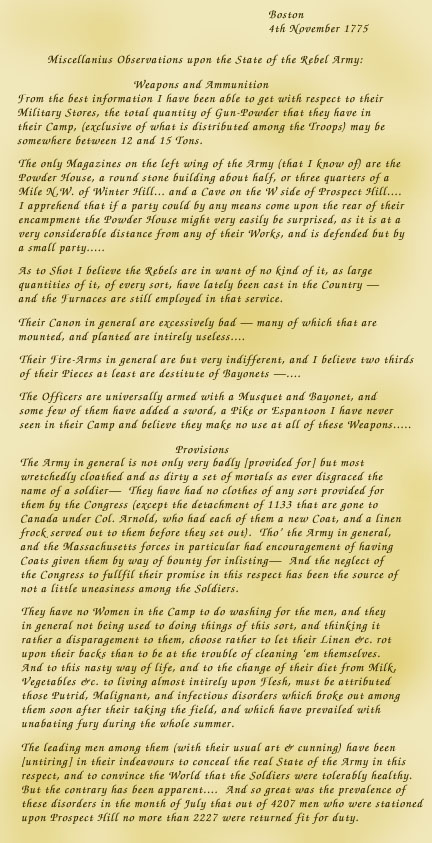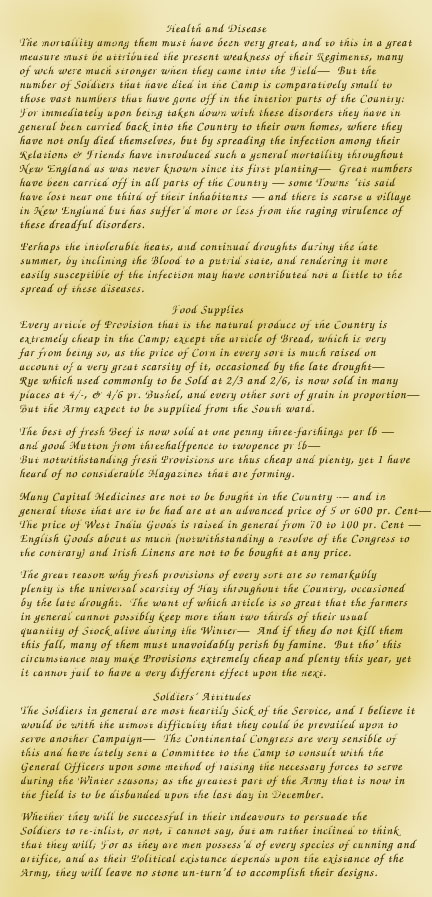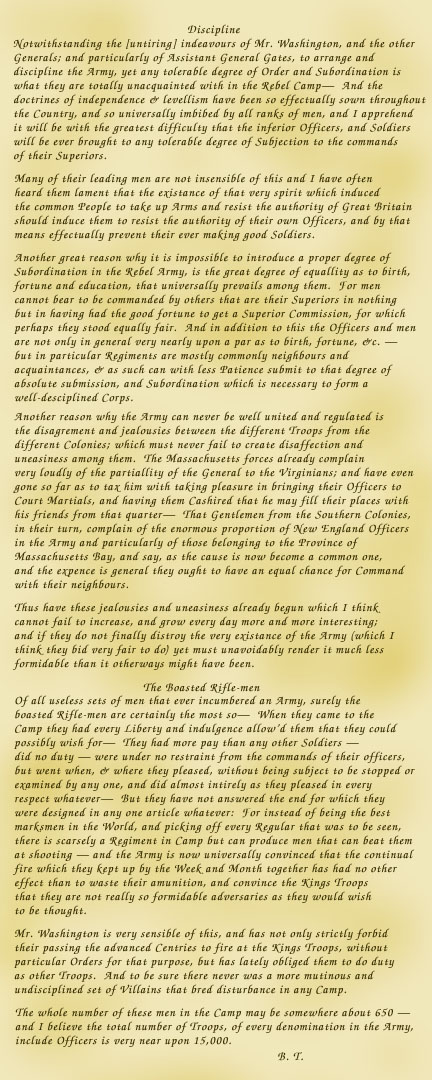
University of California, Irvine
Instructor: Dr. Barbara J. Becker

|
|
On April 19, 1775, a skirmish between rebellious American colonists and British soldiers was fought in Lexington, Massachusetts near Boston. As a special precaution, special checkpoints were set up all around Boston to search everyone and everything going in and out of the city.
A few weeks later, Benjamin Thompson wrote a letter using a carbon-based ink.
Other than the fact that the lines were widely space, there seemed to be nothing unusual about the message. It passed through the checkpoint without suspicion.
| Sir:
If you will be so kind as to deliver to Mr. _____ of Boston, the papers which I left in your care and take his Receipt for the same, You will much oblige.
[signature erased] Saturday May 6th 1775. |
Although the visible message on Benjamin Thompson's letter was innocent enough, there was more on the page than met the eye! He had used nearly every square inch of blank paper to write another message--a message to inform the British about the size, strength, and plans of the Rebel Army! To prevent this message from being discovered by the wrong people, Thompson wrote it in a special pale yellow ink he made himself. The color of the ink exactly matched that of the handmade paper he wrote on. To reveal the "invisible" message, the paper had to be specially treated with a chemical solution.

Here's the text of another letter attributed to Benjamin Thompson:



Thompson's neighbors became increasingly suspicious of his activities and in March 1776, he was forced to flee to London, leaving his wife and baby daughter behind. Although he sometimes talked about visiting America again later in his life, he never did.
His charm and wit combined with his ambition and skill allowed Thompson to rise quickly in the ranks of the British Army. He was knighted by the King of England. He traveled to Germany and spent many years there as a special advisor to the Elector of the state of Bavaria. In 1792, the Elector rewarded him with the title of Count, and Sir Benjamin Thompson became Count Rumford.
|